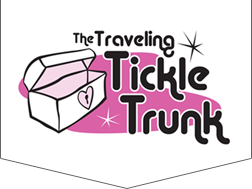Yet Another Female Libido Drug

Late last week, the FDA approved the sale of a new drug for Female Sexual Dysfunction. The drug, called Vylessi, is once again being touted as the female Viagra, in spite of it bearing absolutely no relation to Viagra at all.
Vyleesi is different even from Addyi, the other FSD drug that was approved in 2015. Instead of acting on neurotransmitters in the brain, Vyleesi inhibits melanacortin receptors, increasing the amount of available melanocortin in the body. In fact, Vyleesi was first developed as a self-tanning drug. The side effect of increase sexual desire was noticed during drug trials.
There is another major difference between Vyleesi and Addyi. Addyi must be taken daily and may take several days or more for the person to notice effects. Vyleesi need only be taken 45 minutes before you want to get busy. Vyleesi also does not interact with alcohol the way that Addyi does/ That's a major benefit - as alcohol and sex do often go together.
But Vyleesi is not without its issues. The biggest problem is that it's an injection. There are many people who are put off or frightened by the idea of injections. Another issue is that while there are far fewer and much less serious side effects associated with Vyleesi than with Flibanseran, it can only be taken a maximum of 8 times a month and not more than once every 24 hours. So even if it does help to increase your desire, there is limit as to how much extra action you will get from injecting this drug.
There are definitely some benefits to taking this drug over taking Addyi, but does it actually help? It seems doubtful. 1200 women participated in a clinical trial of Vyleesi. They were asked to rate their distress over their lack of desire on a scale of 1 to 4. They reported, on average, and decrease of one point after taking the drug. This is small, but could be understood to be significant. After all, it's only a four point scale, so that's a 25% increase in happiness right? Compare that, however, to the numbers they reported for incidents of satisfying sex. That improvement was only .6 on a scale from 1 to 6. So perhaps, on average, these women were 25% happier but the actual satisfying sex they had was marginal.
I'm certainly not mad at a placebo. If you had a drug that you believe will increase your desire and you take the step of injecting yourself with it before you are planning to have sex, you may very well find that your desire increases. It stands to reason. You are priming yourself, readying yourself for sex, and you are taking an action that you believe will make you horny and make you have better sex. There's a good chance that those things alone will increase both your likelihood of having sex and your satisfaction with it. If this works for you, and there are no ill effects from it, certainly do it.
My concern is the pharmaceuticals that are making a huge amount of money on this. They do it by selling us the myth that sexual desire exists almost entirely in body and brain chemistry and that we can fix those things.
The truth is that the physical and biochemical aspects of desire and satisfying sex are only one small part of the equation - and they are very poorly understood. Desire is a complex thing. It involves our body and brain chemistry, our feelings about ourselves, our feelings about our partners, our current mood, our current relationships and our past history, as well as other factors that are going on in our life in general and in the moments when we might want to have sex. These are not things that are easily resolved with an injection.
In spite of this, the pharmaceuticals valiantly continue to try to find the elusive female Viagra. It's not hard to understand why. Sales of Viagra and other similar drugs total about $1 billion annually. There is a lot of money on the table for the company that makes that lightening strike a second time.
After the approval of Vylessi, a financial analyst predicted potential sales of $732 million by 2030. That sounds like a lot, but its actually only $66 million per year. That is a small sliver of Viagra sales.
I doubt that it will ever reach even that high, given that it's an injectable, and the reported increase in desire and satisfaction is minimal. My guess is that many of the people who do try it will give up on it. It will likely end up like Flibanseran, which was pushed through with such vigor and great expectations to end up selling only $4000 in the first six months.
Drugs can be hugely helpful for so many things. Indeed some drugs have saved millions of lives. But they aren't the answer to everything. The reasons why women have low sexual desire are varied and multi-layered. Drugs can only ever be a tiny part of a complex, patient, and compassionate approach to helping women sort what is happening with their sex lives and how to get what they want.

